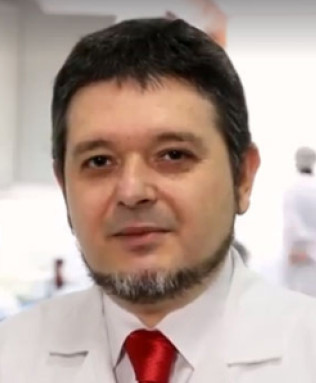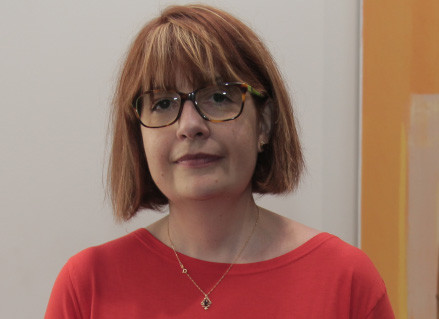Almost 160 lifesaving medicaments have disappeared from the domestic market in just one year, patients say. But it is not only patients, doctors are also complaining of a lack of medicines in the country.
Questions about 450 different medicines have been posted on the designated online medicament shortages platform, said Anton Vulev, chair of the National Pharmacy Chamber for the BNR. He says that large quantities of lifesaving medicines have disappeared from the market in recent years. And one of the reasons, Vulev says, is the really old price formation system which has meant that pharmaceutical companies have no financial interest. Another reason is the re-export which is the main cause of the deficit of high-priced lifesaving medicines for patients with specific serious illnesses or transplant patients.
 “It is a systemic and deep-going problem,” Anton Vulev says. “Universal measures must be taken at a state level. We do not have a national medicines policy or system that could have predicted what will happen at a time like this. No measures have been set down for this – how a patient who, for any number of reasons does not have access to specific treatment in Bulgaria can obtain it somewhere else.”
“It is a systemic and deep-going problem,” Anton Vulev says. “Universal measures must be taken at a state level. We do not have a national medicines policy or system that could have predicted what will happen at a time like this. No measures have been set down for this – how a patient who, for any number of reasons does not have access to specific treatment in Bulgaria can obtain it somewhere else.”
According to the health regulations now in place a hospital can apply for a given medicine via the ministry if it is important to a given patient, and only then does the state import it. But this procedure is so administratively cumbersome that in most cases the patient does not live to see it through.
“The way of thinking has to change entirely with the medicine supply system being placed in the centre, it must be clear that it performs state and not commercial functions and any practices that could lead to the disappearance of medicines must be banned,” Vulev says. In his words the biggest paradox in Bulgaria is that under the existing legislation every working person pays income tax, but then pays one more time – health insurance. “That is the money that goes into the national health insurance fund, in 2019 it has the biggest budget ever formed – over 4 billion Leva.”
 “The problem of the lack of medicines is not new,” says Natalia Maeva, deputy chair of the National Patients’ Organization. “If we take a look back through the years we shall see that problems such as this have actually escalated. In this case what we have is poor planning in the healthcare system. We know there are tenders for costly medicines, but I think it is high time the medical administration in Bulgaria sat down and thought about it, because what we have is a lack of therapy which is lifesaving for patients with oncological diseases. In oncology there can be no restrictions, nobody has the right to decide who lives and who dies. Doctors and patients battle cancer together and they have to have the conditions and the funding to do so. And if the state cannot provide for that, then it needs to ask itself what has gone wrong. Whether the health insurance model shouldn’t finally be replaced, whether the system of purchasing such costly therapies shouldn’t be reformed? The National Health Insurance Fund is actually a financial instrument which ensures payment, but I think that Ministry of Health should endeavour to create an electronic register, including of rare diseases. That is the way to know what therapies will cost for every coming year.”
“The problem of the lack of medicines is not new,” says Natalia Maeva, deputy chair of the National Patients’ Organization. “If we take a look back through the years we shall see that problems such as this have actually escalated. In this case what we have is poor planning in the healthcare system. We know there are tenders for costly medicines, but I think it is high time the medical administration in Bulgaria sat down and thought about it, because what we have is a lack of therapy which is lifesaving for patients with oncological diseases. In oncology there can be no restrictions, nobody has the right to decide who lives and who dies. Doctors and patients battle cancer together and they have to have the conditions and the funding to do so. And if the state cannot provide for that, then it needs to ask itself what has gone wrong. Whether the health insurance model shouldn’t finally be replaced, whether the system of purchasing such costly therapies shouldn’t be reformed? The National Health Insurance Fund is actually a financial instrument which ensures payment, but I think that Ministry of Health should endeavour to create an electronic register, including of rare diseases. That is the way to know what therapies will cost for every coming year.”
In Natalia Maeva’s words the fact there are no health records is also a spoke in the wheel of the system. If there are such health records then it would be easy to see the case history and what the patient needs, so that the medication can be planned and delivered within months or one year. “As things stand at this time, problems are tackled piecemeal – patching things up here, adding something there as long as no crisis arises,” Natalia Maeva says and concludes: “That is not the way things can go on.”
Photos: archive
Exactly a month after the Bulgarian National Radio solemnly celebrated its 90th anniversary, history continues its dialogue with us, its authors. With a special event on February 25, the exhibition "90 Years of the Bulgarian National Radio - The Radio..
Exactly 3 years ago, on February 24, Russia’s invasion of Ukraine began – an event that woke up Europe 77 years after the end of World War II and called into question one of the main goals of the EU – preventing a new armed conflict on the continent...
The festive service for the consecration of the new Bulgarian Orthodox church in London is led by His Holiness Daniil , Patriarch of Bulgaria, who also officiated at the Ressurection Vespers on Saturday. Hundreds of lay people-official guests and..

+359 2 9336 661
